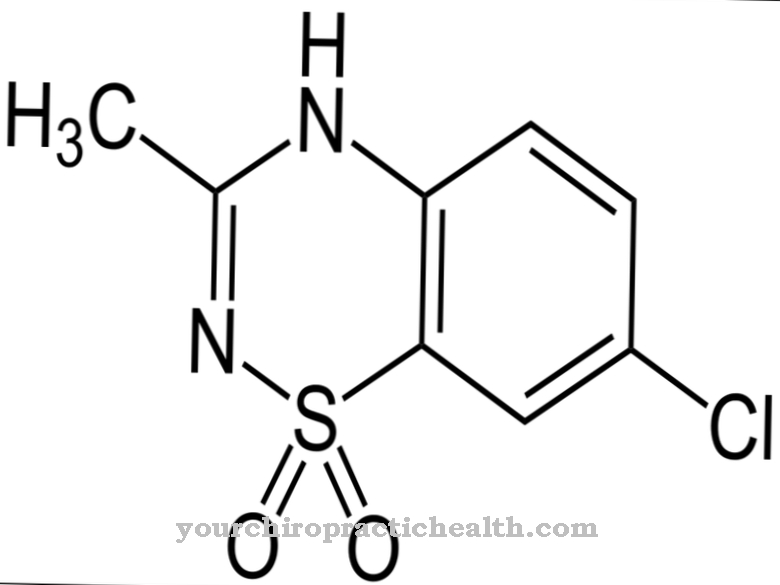Prednisone is a so-called glucocorticoid, a steroid hormone that is produced in the human body. It is very widely used in medicine because it has anti-inflammatory effects and suppresses immune system reactions. It has been known in medical circles since the 1950s.
What is Prednisone?

The term Prednisone refers to a so-called glucocorticoid. This is a steroid hormone that is produced in the adrenal cortex. In the liver, the substance can also be converted into prednisolone, which has active metabolic properties.
Prednisone has been used in medicine and used for different purposes since the 1950s. Almost any disease that involves the immune system can be treated with prednisone.
A long-term and / or highly concentrated intake of the substance leads to a rapid dependence of the body, so that a slow weaning must then take place, which can last for several weeks. Abrupt withdrawal can potentially lead to life-threatening conditions.
Pharmacological effect
Prednisone can perform different tasks in the body. The adrenal cortex not only produces the steroid hormone itself, but also cortisol, which is required for numerous metabolic processes.
If there is a lack of cortisol in the body or if its production is restricted, prednisone can replace this.For this, additional doses of drugs containing prednisone are usually necessary; however, the substance is usually only dosed in small amounts for these purposes. Higher doses of prednisone act as anti-inflammatory agents in the body and can also suppress the immune system with some delay.
It protects already damaged tissue from the penetration of the inflammatory pathogen. At the same time, it prevents the immune cells from releasing substances that lead to the typical immune reactions. In this way, inflammatory reactions can be prevented or significantly weakened after they occur.
In the case of a respiratory disease, prednisone suppresses the accumulation of water (edema) in the mucous membranes, which leads to a widening of the bronchial entrance and a reduction in mucus production and thus to a relief of the symptoms. When an allergy occurs, the usual violent reaction of the body to the allergy trigger is also significantly reduced by prednisone, so that the symptoms are much weaker.
Medical application & use
In medicine it will Prednisone used to treat a wide variety of diseases. Basically, it can be used for all diseases and complaints in which the immune system is involved or in which there are usually inflammatory reactions that should be prevented.
The use of prednisone, for example, after an organ transplant, makes sense because it can prevent the foreign organ from being rejected. Allergies, inflammatory reactions that are not triggered by viruses or bacteria, rheumatic diseases and diseases of the respiratory tract such as chronic bronchitis are usually treated with prednisone.
Even more serious diseases such as liver and kidney infections, multiple sclerosis, pneumonia or leukemia often respond well to therapy with prednisone. This also applies to diseases that affect the muscles or the nervous system, such as fibromyalgia or autoimmune diseases such as myasthenia gravis.
Given its mode of action on the gastrointestinal tract, the administration of lower doses of prednisone is also advisable in the case of loss of appetite, nausea or anorexia (especially if these symptoms are due to cancer).
You can find your medication here
➔ Medicines to strengthen the defense and immune systemRisks & side effects
Long-term and / or high-dose intake of Prednisone can have different side effects. The most common include osteoporosis, disorders of the sugar metabolism, headaches and an increased risk of infection.
The external use of prednisone can lead to skin changes, in particular increased sensitivity of the skin and changes in color. If used for a very long time, the adrenal cortex may fail completely. Due to the severity of some possible side effects, prednisone should only be given under observation and only when actually necessary.
Therapy with prednisone must always be ended slowly ("creeping"), as otherwise the adrenal cortex cannot optimally resume its function. In the worst case, this can lead to a life-threatening condition which must be avoided in any case.



























